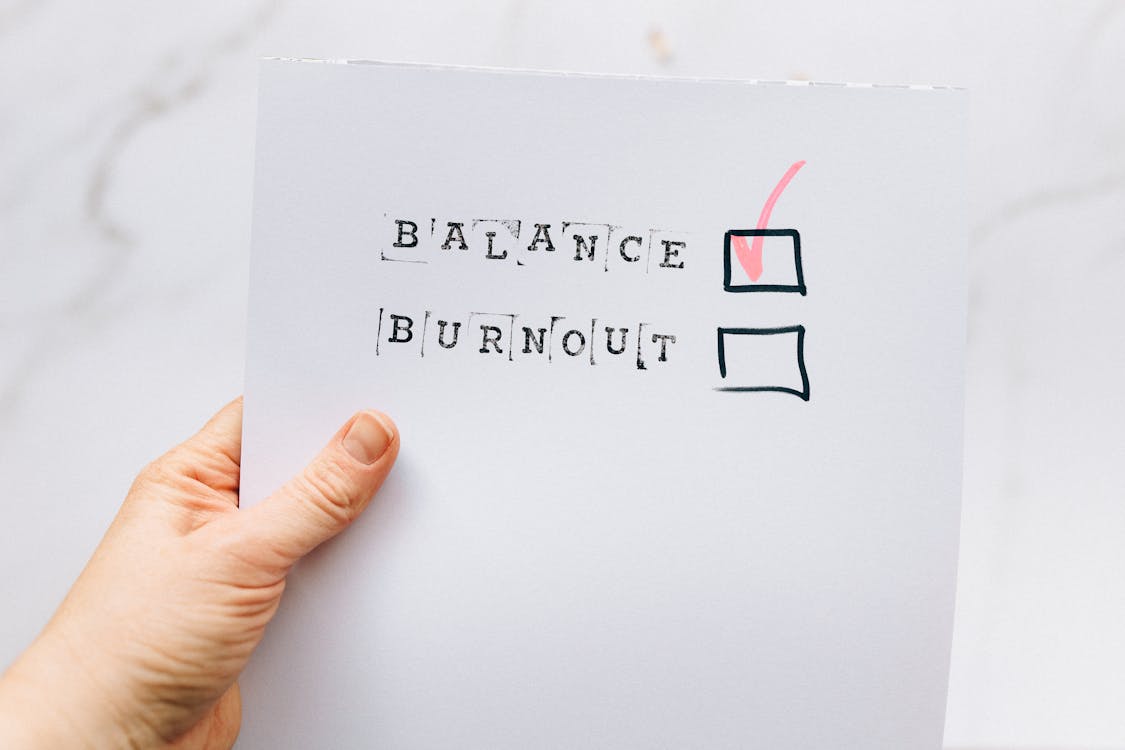Why Maintain Work-Life Balance in Graduate Studies
Graduate School
Graduate studies often present unique challenges that can lead to significant stress levels, burnout, and declining mental health. The pressures of academic deadlines, research requirements, and the pursuit of professional goals can overshadow personal life, making it essential to understand why maintain work-life balance in graduate studies is crucial. This balance is not merely a luxury; it is a necessity for achieving sustainable success, enhancing academic performance, and fostering personal growth.
1. Mental Health Preservation
The importance of mental well-being cannot be overstated. Graduate students are vulnerable to anxiety, depression, and burnout. A balanced approach to life can significantly improve resilience and reduce stress.
Key aspects to consider:
- Setting Boundaries: Clearly defining work hours and personal time helps mitigate stress. For instance, a student can allocate specific hours for studying and personal activities, effectively separating academic responsibilities from relaxation.
- Seeking Support: Utilizing campus resources such as counseling services can greatly assist in maintaining mental health. Many universities offer workshops on stress management and mindfulness.
- Engaging in Hobbies: Regular engagement in recreational activities fosters creativity and provides a necessary distraction from academic pressures.
- Understanding Triggers: Keeping a journal to identify stress triggers can empower students to manage their time and emotions better.
A structured approach to balancing studies and personal life is essential. By allocating time each week for non-academic pursuits—such as exercise, hobbies, or socializing—students can rejuvenate and return to their studies feeling more focused and less stressed.
Advanced considerations for maintaining mental health involve creating a personalized wellness plan. This may include weekly check-ins with oneself about mental health status and adjustments to one’s schedule based on these reflections. Seeking feedback from peers can also provide new insights into personal challenges.
 Maintaining mental health is essential; balance is key in graduate studies.
Maintaining mental health is essential; balance is key in graduate studies.
2. Academic Performance Optimization
Striking a work-life balance significantly impacts academic performance. Students who prioritize their well-being generally demonstrate better focus and retention.
Important considerations:
- Time Management Techniques: Utilizing methods such as the Pomodoro Technique can increase productivity. This involves working for 25 minutes, followed by a 5-minute break, promoting efficient study habits without fatigue.
- Prioritizing Tasks: Implementing the Eisenhower Matrix can help graduate students prioritize their workload based on urgency and importance, leading to less stress and improved time management.
- Continuous Learning: Engaging in workshops that focus on specific academic skills (e.g., writing or research methodology) can enhance knowledge and efficiency.
- Collaborative Learning: Forming study groups can encourage active engagement and understanding of complex materials while also incorporating social interaction.
Implementing these strategies requires discipline and consistency. For instance, setting specific academic goals for each week while tracking progress can provide motivation and clarity.
Looking forward, the academic landscape might evolve with greater emphasis on mental health integration into curricula. Such advancements will likely include workshops focusing on coping strategies intertwined with coursework, leading to overall improved student outcomes.
3. Burnout Prevention Strategies
Burnout is a common affliction for graduate students, often resulting from prolonged stress without adequate recovery time.
Effective Strategies Include:
- Regular Breaks: Establishing a regular schedule for breaks during study sessions can rejuvenate the mind. For example, a student may adopt a 90-minute study followed by a 30-minute break schedule.
- Physical Activity: Regular physical exercise has been shown to alleviate anxiety and boost mood. Incorporating exercise into the weekly routine can serve as an effective burnout prevention strategy.
- Sleep Hygiene: Maintaining a consistent sleep schedule aids cognitive function and overall health. Prioritizing 7-9 hours of quality sleep can drastically improve mental acuity.
- Mindfulness Practices: Engaging in activities such as yoga or meditation helps combat stress and fosters a calm mindset.
Implementing these practices involves assessing the current level of stress and adjusting activities accordingly. Students can keep track of their moods and productivity levels to find an optimal balance between work and relaxation.
Future implications suggest that universities may increasingly adopt practices that prioritize the mental health of students, integrating wellness days into academic calendars.
 Engaging in mindfulness practices helps in burnout prevention during graduate studies.
Engaging in mindfulness practices helps in burnout prevention during graduate studies.
4. Stress Management Importance
Managing stress is critical to success in graduate studies.
Practical Methods Include:
- Structured Routines: Establishing daily routines can create a sense of control. For instance, a set time for unwinding after classes or study sessions can help students mentally transition from work to personal life.
- Mind Mapping: Utilizing mind maps to visualize projects and tasks can reduce anxiety associated with overwhelming workloads.
- Relaxation Techniques: Employing breathing exercises or progressive muscle relaxation can mitigate immediate stress responses.
- Time for Reflection: Allocating time to reflect on accomplishments helps to reinforce positive experiences and reduce feelings of inadequacy.
Employing real-world applications of these methods involves regular practice and adaptation to personal preferences. For example, if a student finds journaling effective, setting aside 10 minutes daily for this can be beneficial.
Looking ahead, advancements in technology may further enhance stress management strategies with apps that focus on mental wellness and time management.
Common Questions Answered
What are effective ways to maintain a work-life balance?
Effective methods involve setting boundaries between academic responsibilities and personal time, prioritizing tasks, and ensuring regular physical and mental breaks.
How does poor work-life balance affect academic performance?
Poor balance can lead to burnout, decreased productivity, and reduced academic performance, as stress can impair cognitive functions and decision-making abilities.
What role do social relationships play in work-life balance?
Social connections provide emotional support, motivation, and opportunities for collaboration, which are vital for long-term success in graduate studies.
Are there specific tools to help with time management?
Using planners, digital calendars, and productivity apps can help track deadlines and manage time effectively.
How can a graduate student identify when they are at risk of burnout?
Signs of burnout include chronic exhaustion, disengagement from studies, increased cynicism, and declining academic performance. Awareness of these signals is crucial for timely intervention.
Best Practices for Maintaining Work-Life Balance
- Strategic Framework: Establish a structured routine emphasizing both academic and personal time. Include essential tasks for each day, accounting for flexibility.
- Implementation Guidelines: Regularly reassess commitments and be willing to adjust schedules as needed. Seek feedback from peers on effectiveness of strategies in maintaining balance.
- Success Metrics and KPIs: Use personal metrics such as academic grades, mental health check-ins, and personal satisfaction ratings to gauge progress.
- Risk Mitigation Strategies: Be proactive in addressing overwhelming feelings by seeking help and establishing a supportive network of mentors and peers.
- Future Considerations: Prepare for potential transitions into the workforce by developing adaptable skills that will aid in maintaining work-life balance post-graduation.
Key Takeaways
| Key Takeaways: Work-Life Balance in Graduate Studies |
|---|
| 1. Establish and adhere to clear boundaries between academic and personal time to avoid burnout. |
| 2. Engage in regular physical activity and mindfulness practices for improved mental health. |
| 3. Utilize effective time management tools and techniques to enhance productivity. |
| 4. Foster social relationships that provide emotional support and collaborative opportunities. |
| 5. Regularly reassess mental health and productivity to prevent stress and burnout. |
By integrating these 10 solutions, graduate students can effectively navigate the complexities of academic pressures while nurturing their well-being and success. The pursuit of balance is not simply a task; it is an ongoing journey that enhances both academic achievements and personal fulfillment.